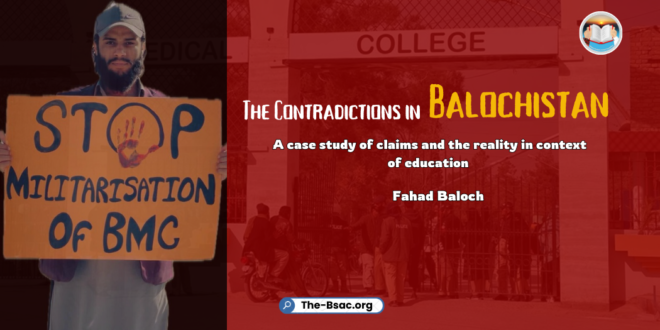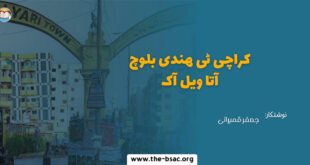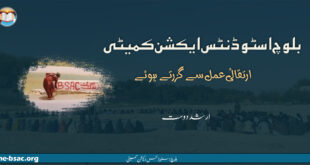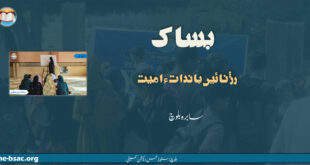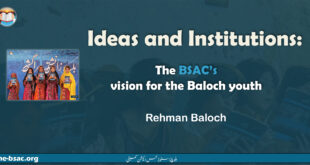The Contradictions in Balochistan: A case study of claims and the reality in context of education:-
By:- Fahad Baloch
Baloch Students Action Committee ( BSAC)
Balochistan is undoubtedly a region ravaged by violence, oppression, and state-sponsored brutality. Since 1948, Balochistan has grappled with a crisis of national identity and endured a national genocide. The region has witnessed a surge in enforced disappearances, earning it a notorious reputation for gross human rights violations and forced disappearances.
The Baloch people accuse the state of perpetrating heinous crimes against them, labeling these actions as inhumane. Although these allegations are well-documented, the state has consistently failed to provide reasonable justifications for its actions. A prudent observer can reasonably conclude that the state is directly responsible for the situation in Balochistan and the genocidal policies being implemented.
Despite this, the state attempts to conceal its genocidal policies, often disguising them as efforts to engage the youth. The Baloch has rejected claims made by those in power, who they believe are exploiting them and serving the interests of the deep-state.
The Chief Minister of Balochistan, who is allegedly opposed to Baloch interests and implicated in genocidal policies, has claimed to be working towards creating a well-educated Baloch society. However, his statements appear to be mere rhetoric, lacking practical evidence to support his claims. Furthermore, his promises of foreign scholarships for students, professional skill development and production of know-how individuals in Balochistan have been met with skepticism, as students take to the streets to protest educational oppression and discrimination.
The situation in Balochistan is a stark reminder of the state’s failure to address the grievances of its people and its penchant for resorting to violence and repression.
Taking it to further, The Baloch students accuse the government of putting their educational institutions in danger, alleging that these institutions are being taken away through hoax tactics. They claim that the government’s schemes for foreign education, professional training, and providing know-how education are mere rhetoric, aimed at engaging students in activities which are part of orthodox colonial-era practices. These allegations have been made since 1948, and the situation remains unchanged.
Recently, students of Bolan Medical College (BMC) have been protesting outside their college gate, demanding the restoration of their college and the reopening of hostels. They argue that the administration, in collusion with the individuals in power, has closed academic activities. The students also point out that their existing batches are already behind schedule, and a new batch is arriving soon.
Furthermore, The students question the unreasonable closure of hostels, which they claim belong to them. They also query the need for re-allotment of rooms when they already have allotted rooms. Furthermore, the students of BMC allege that a new notice for revamping the hostels has been issued, and their belongings have been stolen prior to the notice.
Nevertheless, The students fear that the notices are not for renovation but to evacuate hostels, as experienced in the past in Atta Shaad degree college and BUITEMS. The BMC students have been protesting for 22 consecutive days, demanding the restoration of their college, resumption of academic activities, and reopening of hostels.
Although, Student political organizations and concerned groups are sounding the alarm, warning of a high likelihood of militarization in educational institutions. This, they argue, would exacerbate the already daunting challenges students face in pursuing their education. These groups point to past instances of militarization, which were only halted after intense protests and public outcry. However, they claim that similar circumstances are now unfolding, threatening to undermine the academic environment.
According to student leaders and political organizations, the ultimate goal of militarization is to stifle students’ access to quality education, particularly critical thinking and skills-based education. Militarization, in this context, refers to the unlawful presence and deployment of security forces within educational institutions.
The militarization of educational institutions constitutes a grave educational crisis that necessitates unequivocal condemnation from all segments of society, including stakeholders.
In conclusion, the government’s claims of providing quality education, developing skills, and offering foreign scholarships appear to be paradoxical, given the crisis in the existing education system in Balochistan
